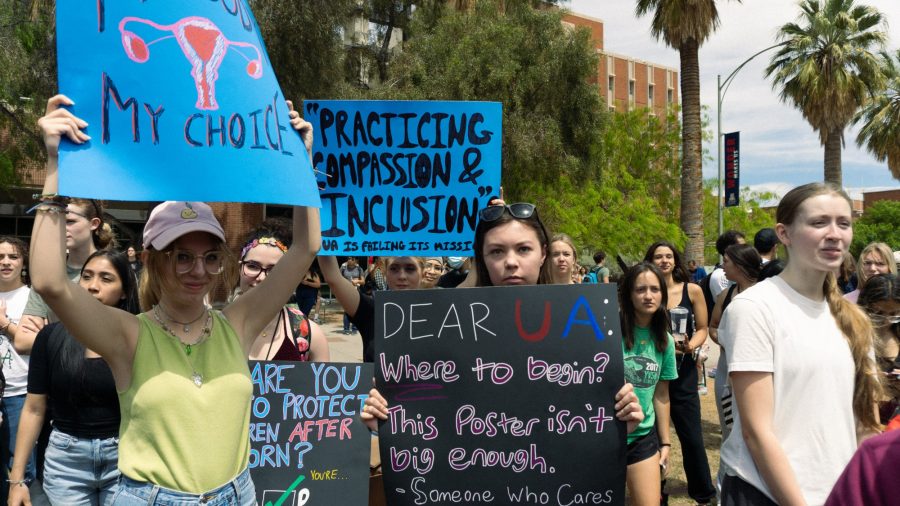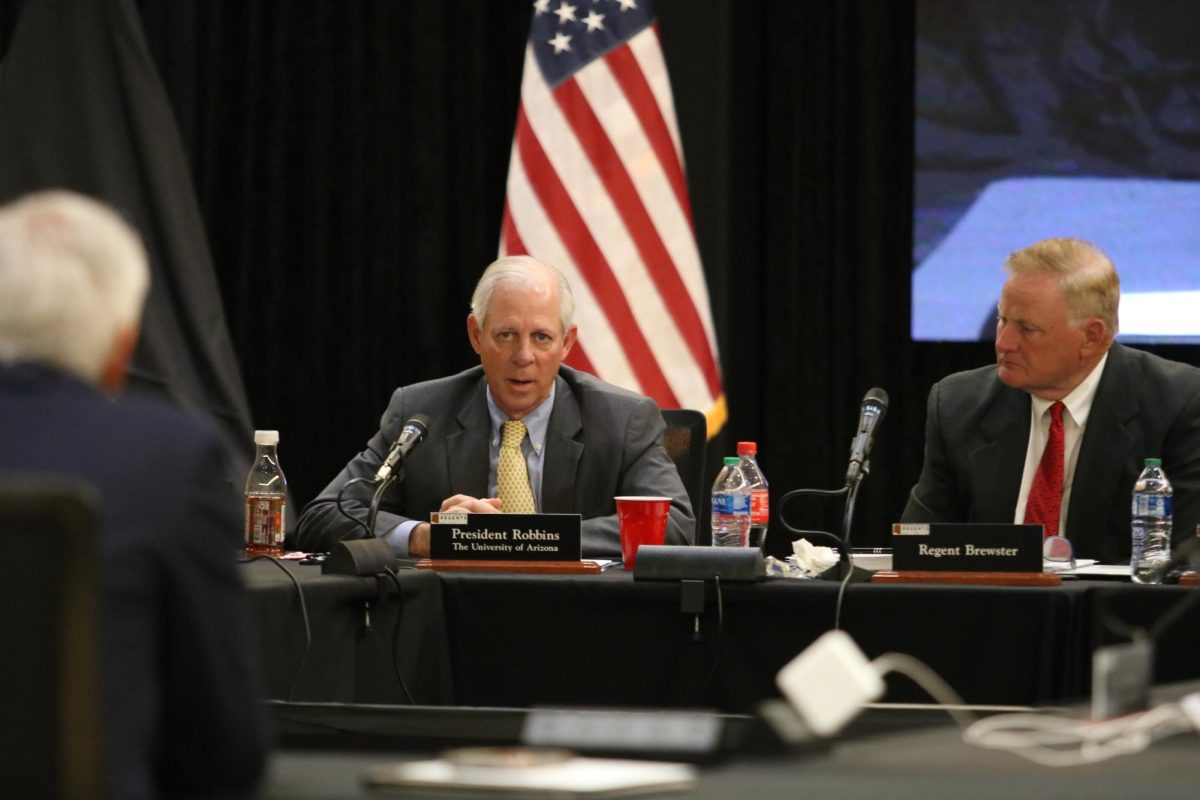An $85,000 survey conducted by the UA in spring 2015 revealed that a significant percentage of respondents have been sexually assaulted or have witnessed situations that led to sexual assault, without acting.
During a press briefing Monday morning, Melissa Vito, senior vice president for student affairs and enrollment management and senior vice provost for academic initiatives and student success, went through the results of the campus climate survey that UA students took in April 2015.
According to the UA press briefing, 2,852 UA students participated in the survey, an 8 percent response rate. Of those respondents,13 percent said they have experienced sexual assault and misconduct.
There was a higher incident of sexual assault and misconduct experienced by non-heterosexual students and students with disabilities—22 percent and 21 percent respectively.
The survey found 45 percent of respondents “witnessed a drunk person heading for a sexual encounter,” and of that 45 percent, 77 percent did not act on the situation.
For the 22 percent of respondents who “witnessed someone acting in a sexually violent or harassing manner,” 43 percent took action in comparison to the 58 percent who did nothing.
According to the survey results, UA students, for the most part, also indicated a strong knowledge of campus resources for sexual assault. However, only 28 percent of respondents knew what happens when a student reports a sexual assault.
One of the Association of American Institution’s goals is to collect data on students’ experiences with sexual assault and misconduct. The AAU is comprised of 62 institutions , and of those, 26 and one non-AAU institution participated in the survey.
The UA’s goals were to assess students’ sexual assault and misconduct encounters, knowledge of campus resources in addressing campus sexual assault and students’ views on sexual assault.
Vito said the reason the response rate to the survey was so low was because of when the survey was conducted, which the UA had no control over. The Association of American Universities had determined the time frame for which the survey was completed, from April 2-23, 2015.
“We had no flexibility in when the survey was conducted,” Vito said.
Vito stressed that one of the findings of the survey was UA students, for the most part, are confident UA officials will take reports of sexual assault and misconduct seriously.
According to the press briefing document, 62 percent of students who took the survey think UA officials will take reporting extremely or very seriously, while 49 percent think UA officials will conduct a fair investigation.
UA president Ann Weaver Hart sent out an email to the campus community Monday morning that included the primary findings from the survey.
“We all must commit to doing everything we can to prevent sexual assault and the damage and destruction it causes to our students, faculty, staff and the broader Wildcat community,” Hart stated in the email.
Krista Millay, program director for the Women’s Resource Center , said the UA has used this survey to work on future initiatives to further combat sexual assault.
“Part of the most exciting thing for us with this survey is where we can go and what we can do and so some our future initiatives [are] with a curriculum development through a grant from Arizona Department of Health Services to develop a program for all incoming Wildcats, starting fall 2016,” Millay said.
The program Millay is referring to is peer-to-peer sexual assault education, according to the press briefing.
The briefing also outlined other initiatives, such as the Associated Students of the University of Arizona “I Will” campaign and new websites that will make information to survivors of sexual assault more accessible.
“The results of this survey also give us a teachable moment to revisit our campus and re-engage,” said Chris Sigurdson, vice president of communications at the UA.
Follow Meghan Fernandez on Twitter.








